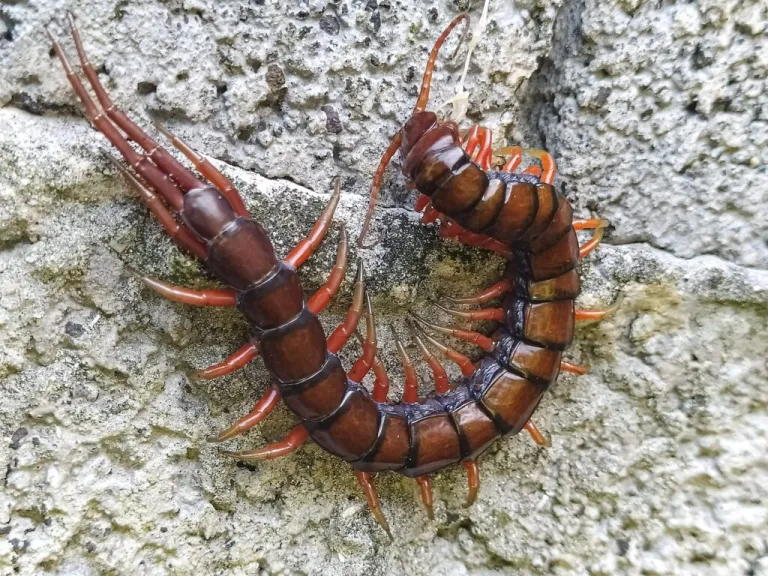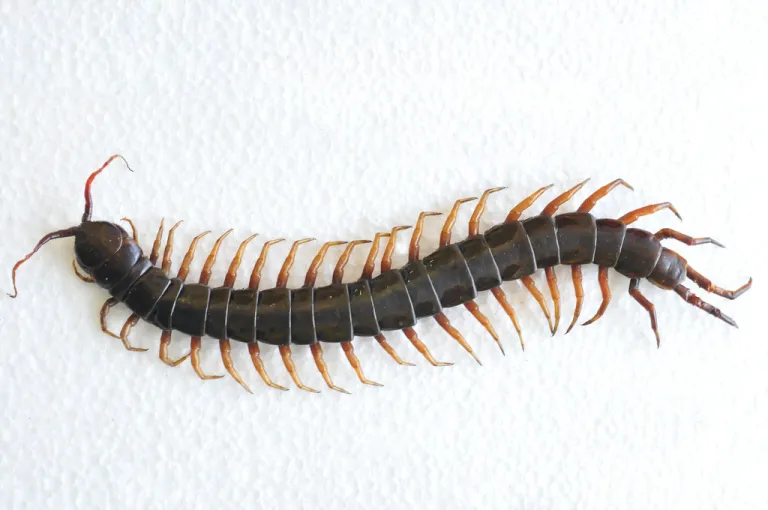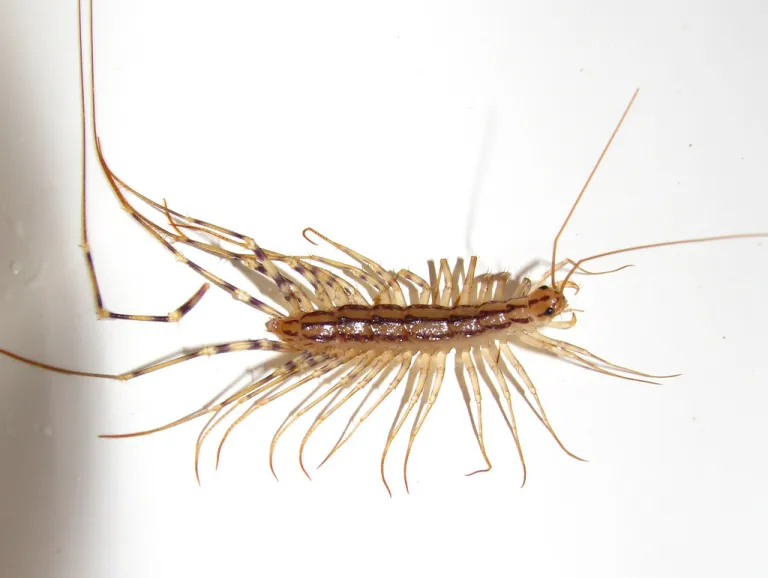Why You Should Avoid K!ll:ing House Centipedes…
Centipedes are easy to recognize by their worm-like bodies, lots of legs, long antennas, yellow to dark brown colors, and small mouths with venom glands.
They can have 15 to 77 pairs of legs, which help them move quickly and climb walls.
Can a centipede bite you? Centipedes can bite and inject venom, but they usually aren’t dangerous to people or pets. Their bites might cause mild pain or redness, but nothing serious.

However, centipedes aren’t exactly creatures you’d want to welcome. Read on to learn more about centipedes, their predators, why you shouldn’t kill house centipedes yourself, and the benefits of using pest control services.
Five Facts About Centipedes You May Not Know
Here are some surprising facts about those centipedes in your basement:
The number of legs a centipede has is linked to its age. Centipedes grow more legs as they molt, and if they lose legs, they can regrow them over time through molting. It might take several molts to fully recover lost legs.
Centipedes are ancient creatures, with their ancestors dating back over 400 million years.
Centipedes are surprisingly fast. Thanks to their many legs, segmented body, and waxy outer layer, they can move over a foot in less than a second when chasing prey or escaping predators.

Centipedes eat a variety of animals. While smaller species go for insects, worms, and roaches, larger centipedes can handle much bigger prey.
Some centipedes, like the common house centipede, can live for up to six years.
Even though their history is fascinating, you likely don’t want these creatures lurking in your basement.
What Are Centipedes’ Natural Predators?
Centipedes are hunted by birds, certain spiders, mice, frogs, beetles, and snakes. Larger centipedes, in turn, feed on animals like frogs and spiders. Predators like frogs and spiders usually target young or weak centipedes that can’t escape quickly.
Why You Shouldn’t K!ll a House Centipede
If you spot a house centipede, it might be tempting to get rid of it yourself, but it’s better not to. Having a few house centipedes around isn’t always a bad thing.

Centipedes can be helpful by getting rid of spiders, roaches, and other pests, without building nests or webs. However, their presence can become a problem. While a few centipedes might help control pests, a larger colony can be a nuisance and may even attract more unwanted pests.
Centipedes can live up to 10 years, so you probably don’t want them staying in your home for too long. Even if they aren’t a major problem yet, it’s a good idea to call pest control experts. An infestation might be a sign of a bigger pest issue, and centipedes aren’t always enough to fully manage harmful pests like cockroaches.


